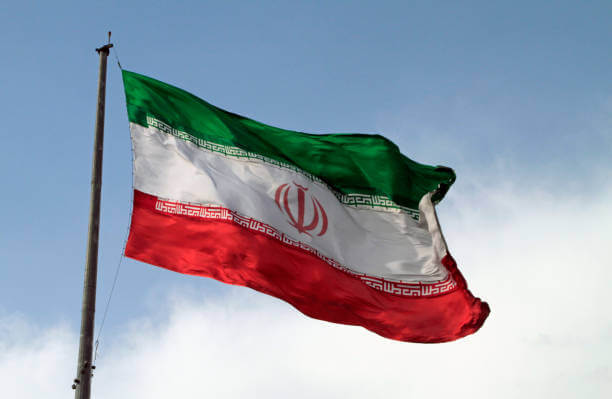As the United States gets closer to a full revival of the 2015 Joint Comprehensive Plan of Action (JCPOA) in Vienna, several other hurdles remain unsolved.
Throughout the talks, officials have agreed to several measures regarding Iran’s oil production and uranium enrichment in the soon-to-be revived agreement. However, one crucial hurdle that the Biden Administration has yet to decide is the removal of Iran’s Revolutionary Guards Corps from the U.S. list of Foreign Terrorist Organizations.
The origins of the Iranian Revolutionary Guard Corps (IRGC) can be traced back to the Iranian Revolution of 1979 by Ayatollah Ruhollah Khomeini. From its very inspection, this branch of the Iranian military safeguards the Islamic Republic and Khomeini's Islamic ideals through militaristic and terroristic means. The IRGC and its leadership have been responsible for supporting and funding other terrorist groups outside of Tehran like Hamas and Islamic Jihad in the Gaza Strip, Hezbollah in Southern Lebanon, the Houthis in Yemen, the Muslim Brotherhood in Egypt, and Syrian President Bashar al-Assad government.
Some analysts point out that the Iranian Revolutionary Guard (IRGC) has been why the Supreme Leader of Iran and the Islamic government have been in power for so many years. In the past, when ordinary young and old Iranians took to the streets to protest the regime, the Iranian government would deploy its Revolutionary Guard to quash peaceful protesters with brutal force. Past political prisoners of the Iranian regime who have been arrested and tortured in IRGC-affiliated prisons described in detail the atrocities committed by the soldiers such as torture, sexual abuse such as rape, and summary executions.
During the Trump administration, the Iranian Revolutionary Guard (IRGC) was labeled for the first time by an American administration as a foreign terrorist organization.
This action was part of many policies taken by the U.S. to exert maximum pressure against the Iranian government, allowing the U.S. to impose sanctions against its involvement in Tehran’s economy, military actions, and human rights abuses.
From the time then-candidate Joe Biden was running for president, he made the decision to embark on a different approach with Iran and its Revolutionary Guard Corps. He was set on reviving the deal.
The lack of transparency and detail in negotiating this time around has resulted in great consternation among bipartisan members of Congress and among many Middle Eastern allies such as Israel, UAE, and other Arab countries who believe that normalizing relations with Iran’s brutal regime will not bode well for the region.
Israeli and U.S. officials have sounded the alarm over revival of the deal harshly, believing that the Biden administrations previous actions in the Middle East in appeasement and ‘diplomacy’ have yielded similar outcomes.
During the early months of the Biden administration, the State Department removed the Iranian-backed Houthi rebels in Yemen from the Foreign Terrorist Organization list, causing great disapproval among members of Congress, Israel, and the Saudi Arabian government.
Israel’s Prime Minister recently stated that removing the Islamic Revolutionary Guard Corps from the U.S. terrorist list would make the U.S. incur a high price to pay for a nuclear deal with Tehran.
As American officials have asked Tehran for a public promise of de-escalating their militant activities in the region, Prime Minister Bennet and Israeli Foreign Minister Lapid argued the impossibility of trusting the Iranian government to stop any of its terrorist activities.
The Persian Gulf States close to Iran, which have witnessed the power and might of the Revolutionary Guards, have pleaded with the Biden administration not to remove the IRGC’s terrorist designation, making the same argument as the Israeli government of not trusting any of Iran’s commitments.
Members of the Israeli government and Arab leaders have announced that should the U.S. delists the IRGC, their governments will continue to treat it as a terrorist organization.
When questioned on the impact of removing the IRGC off the U.S. terrorist list, Alireza Nader, a senior fellow at the Foundation for Defense of Democracies (FDD), stated that "it would be a rebuke to U.S. allies across the Middle East and a friendly gesture towards the Islamic Republic of Iran.”
The removal from the U.S. terrorist list, according to Mr. Nader, would “not only provide the regime with much needed financial resources but also send an important political message to the entire world that the U.S. will tolerate the regime’s destructive behavior.”
U.S. officials who are part of the ongoing negotiations have stated that they are prepared to make difficult decisions to return to the 2015 JCPOA, arguing that Iran’s unrestricted nuclear program has led to an escalating nuclear crisis against U.S. citizens and its allies.
Should the Biden Administration decide officially to go along with this action, not only will there be immediate consequences long term, but faith in the U.S. as an ally against Islamic terrorism will diminish hugely.










